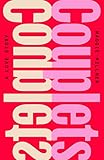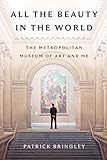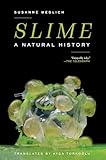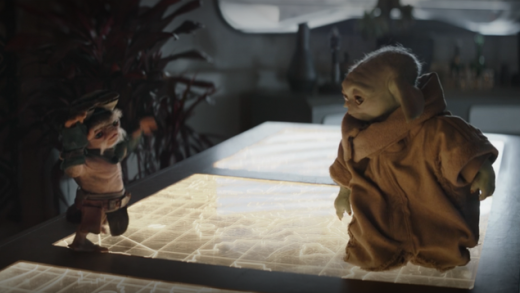We wouldn’t dream of abandoning our vast biannual Most Anticipated Book Previews, but we thought a monthly reminder would be helpful (and give us a chance to note titles we missed the first time around). Here’s what we’re looking out for in February:
Where I’m Coming From by Barbara Brandon-Croft
Drawn & Quarterly has never let me down, and its winning streak won’t be snapped by this collection from the first Black woman to have a nationally-syndicated comic strip. In the witty and groundbreaking “Where I’m Coming From,” which ran from 1989 to 2005, nine Black girlfriends deliver insights and punchlines in equal measure, touching on politics, race, relationships, and everything in between. Tayari Jones says that Brandon-Croft’s work has “aged beautifully,” hailing the collection as “both ahead of its time and right on time.” —Evan Allgood
 Brutes by Dizz Tate
Brutes by Dizz Tate
This surreal and ambitious debut novel, written partially in first-person plural and billed as “The Virgin Suicides meets The Florida Project,” follows a clan of teenaged girls in Falls Landing, Florida, as they grapple with the disappearance of the local preacher’s daughter. Brutes’s adolescent cast, time-jumping narrative, and promise of violence evoke the hit show Yellowjackets. Mariana Enríquez calls it “a beautiful and deeply strange novel, full of dread and longing.” —EA
 City of Blows by Tim Blake Nelson
City of Blows by Tim Blake Nelson
I love movies, but Hollywood—both the city and the industry that undergirds it—has never much interested me. Honestly, celebrity culture in America baffles me. But when a Hollywood insider and an accomplished playwright—and, not to mention, a fine actor—decides to satirize the toxic culture of Tinsel Town, I’m in. Nelson’s debut novel follows four men fighting for control of a script and a place in a rapidly transforming Hollywood. There’s something sustaining in a story that shows how beautiful people can be just as petty—just as ugly—as the rest of us. —Il’ja Rákoš
 Couplets by Maggie Millner
Couplets by Maggie Millner
Lovers of horny, rhyming poetry rejoice: Millner’s “love story in poems,” arrives a week before Valentine’s Day, just in time to tie your brain to its bedposts. Kink and queerness, power and polyamory—this debut by the senior editor of the Yale Review has it all. Read an excerpt in BOMB to see why Elif Batuman, Garth Greenwell, and Leslie Jamison are all head over heels for this clever, seductive story of coming out and coming of age. —EA
 The Black Guy Dies First by Robin R. Means Coleman and Mark H. Harris
The Black Guy Dies First by Robin R. Means Coleman and Mark H. Harris
This collaboration between Coleman, a scholar, and Harris, a journalist and film critic, explores the history of Black horror films since 1968. Named for the well-known cinematic trope, the book spans cult classics like Spider Baby up to commercial and critical successes like Get Out. According to Kirkus Reviews, the book is written with “keen observation, a satirical eye, and a genuine love for the subject.” —Edan Lepucki
 Big Swiss by Jen Beagin
Big Swiss by Jen Beagin
“A sex therapist’s transcriptionist falls in love with a client while listening to her sessions”—that was all I needed to hear to get excited about Beagin’s third novel. Throw in blurbs from Melissa Border and A Touch of Jen author Beth Morgan, and I was all but convinced that Big Swiss will be weird and horny and unfettered in all the best ways. “Pick it up because you like cheese,” Morgan urges, “stay for the brilliant sentences.” —SMS
 Culture: The Story of Us, From Cave Art to K-Pop by Martin Puchner
Culture: The Story of Us, From Cave Art to K-Pop by Martin Puchner
So many books these days are described as being “sweeping histories”; Culture, which promises in its subtitle to take us from our most primitive artistic impulses all the way to the machinery of modern-day fandom. But what intrigues me most about Puchner’s latest isn’t its scope—it’s its driving question: “What good are the arts?” In my more hopeless moments, this question bubbles up inside me, and I’m chomping at the bit to hear Puchner’s answer, grounded in history and informed by cultures around the world. —SMS
 Dyscalculia by Camonghne Felix
Dyscalculia by Camonghne Felix
Following her poetry collection Build Yourself a Boat, which landed a spot on the National Book Award longlist, Camonghne Felix makes her nonfiction debut with this memoir, which charts a life-changing breakup and its many consequences for her life. When the author ends up in the hospital, she draws a parallel between her troubles as an adult and her childhood diagnosis of dyscalculia, a condition which makes it difficult to learn math or estimate place value. As she starts to tally her romantic miscalculations, she asks a wide-ranging question: who gets the right to freely express their own pain? —TB
 All the Beauty in the World: The Metropolitan Museum of Art and Me by Patrick Bringley
All the Beauty in the World: The Metropolitan Museum of Art and Me by Patrick Bringley
A former New Yorker staffer turned museum guard is a pretty compelling tagline, to be certain, and Bringley delivers in this intimate and philosophical debut memoir—he muses on the artworks, coworkers, and museumgoers that surround him. Adding poignancy to the memoir’s conceit, his observations are all permeated with profound grief as he reels from the death of his older brother. Bringly brings the Met to life on a grand scale and granular level. —NR
 The Wife of Willesden by Zadie Smith
The Wife of Willesden by Zadie Smith
For her first foray into playwriting, novelist and essayist Smith reimagines Chaucer’s Canterbury Tale about the Wife of Bath for twenty-first century, northwest London. Alvita, a Jamaican-born British woman in her early fifties, tells her life story to strangers in a pub. In its review, The Guardian calls it “a celebration of community and local legends, of telling a good story and living a life worth telling. Not bad for an original text that’s 600 years old.” —EL
 Users by Colin Winnette
Users by Colin Winnette
I worked for years as a consultant at American-based IT companies with teams in Kyiv, and among those Ukrainians I knew who were handling the code, it was rare to find anyone who worshipped Steve Jobs, loved tech, or saw STEM work as anything particularly noble. No true believers in panaceas or “essential” tech. Here, in the fictional world of Winnette’s latest novel, we encounter a strong critique and timely caution that my Kyiv ITshnyks certainly understood well: the devastation that awaits when we entrust the mechanisms we’ve built to do our thinking, our feeling, and our living for us. —IR
 I Have Some Questions for You by Rebecca Makkai
I Have Some Questions for You by Rebecca Makkai
In her follow-up to her 2018 novel The Great Believers, a Pulitzer and National Book Award finalist, Makkai brings us to a New Hampshire boarding school. Film professor Bodie Kane has been eager to forget her four awful years there, which included a murder of a classmate by the athletic trainer. But when she’s brought back to campus to teach a two-week course, everything she thought she knew about the case is thrown into question. Makkai plays with true-crime tropes to deliver a literary exploration of friendship. —Marie Myung-Ok Lee
 Slime by Susanne Wedlich, translated by Ayca Turkoglu
Slime by Susanne Wedlich, translated by Ayca Turkoglu
Primordial slime has long been considered a cornerstone of life on Earth; without it, the natural world would be unrecognizable. Slimy substances like mucous and slobber are also common features of fictional monsters in popular culture from Lovecraft to Alien. Munich-based science and nature journalist Susanne Wedlich’s ode to the semi-liquids that hold our world together—and our minds in awe—reminds us “we are sticky beings living in a sticky place” (TLS), whether we like it or not. —JW
Want to know about the books you might have missed? Then go read our most recent book preview. Want to help The Millions keep churning out great books coverage? Then sign up to be a member today.
The post February Preview: The Millions Most Anticipated (This Month) appeared first on The Millions.
Source : February Preview: The Millions Most Anticipated (This Month)













